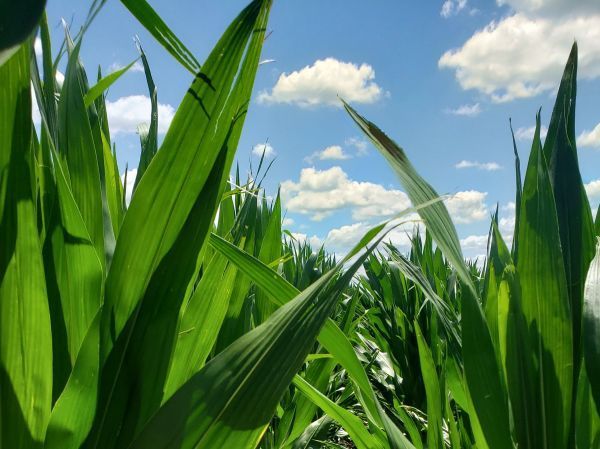FFAR Addresses Corn Tar Spot Disease

Efforts to combat the disease have been hampered by the difficulty of growing Phyllachora maydis in a laboratory – an essential step for developing a remedy. University of Illinois researchers are developing molecular tools and techniques to understand how the pathogen interacts with its host. This information will allow farmers to make more informed decisions about when and how best to apply fungicide – which can better protect crops from corn tar spot.
“It’s especially hard to develop solutions for tar spot when the underlying fungus cannot be grown in a lab,” said FFAR Executive Director Dr. Sally Rockey. “One of our initial objectives is to address unanticipated pathogens and this grant does just that by generating the knowledge needed to help farmers make timely and economical decisions to prevent tar spots.”
University of Illinois researchers are building a multi-state effort to develop research tools and information to help growers with tar spot management. The team’s research is mapping where the fungus is currently, discovering how the fungus entered the US, assessing management options and developing outreach and extension materials for corn farmers. The researchers are also building forecasting models to help producers make timely fungicide decisions using a free smartphone application and working with corn farmers to collect information that will result in immediate real-world impacts on and benefits for producer decisions.
This research is funded through FFAR’s ROAR program, which rapidly funds research and outreach in response to emerging or unanticipated threats to the nation’s food supply or agricultural systems. This ROAR grant was matched by the National Corn Growers Association, Corteva Agriscience, Wyffels Hybrids, Illinois Corn Growers Association and Purdue University for a total investment of $300,000.
About the Foundation for Food & Agriculture Research
The Foundation for Food & Agriculture Research (FFAR), a 501 (c) (3) nonprofit organization originally established by bipartisan Congressional support in the 2014 Farm Bill, builds unique partnerships to support innovative and actionable science addressing today's food and agriculture challenges. FFAR leverages public and private resources to increase the scientific and technological research, innovation, and partnerships critical to enhancing sustainable production of nutritious food for a growing global population. The FFAR Board of Directors is chaired by Mississippi State University President Mark Keenum, Ph.D., and includes ex officio representation from the U.S. Department of Agriculture and National Science Foundation.
Learn more: www.foundationfar.org.







